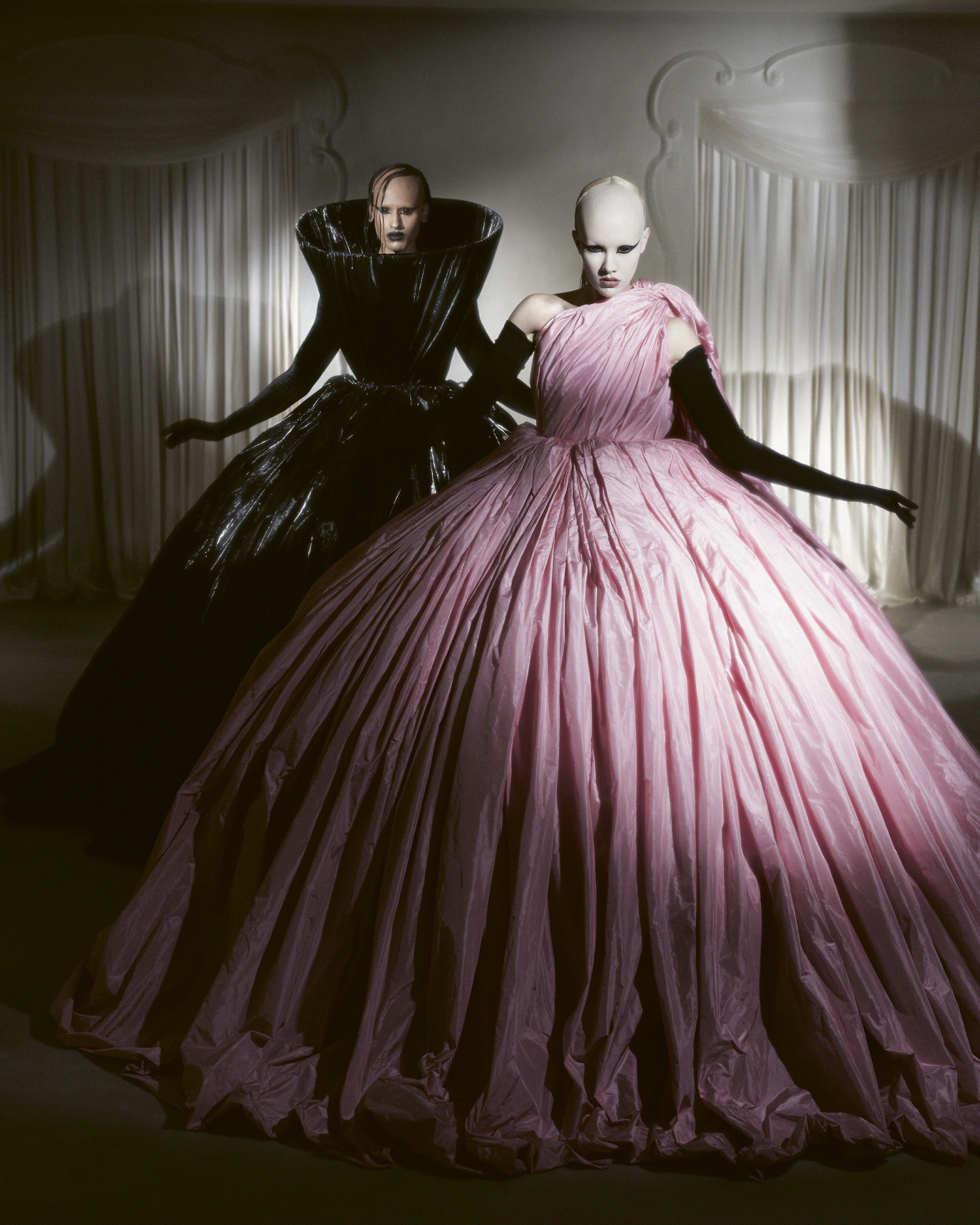
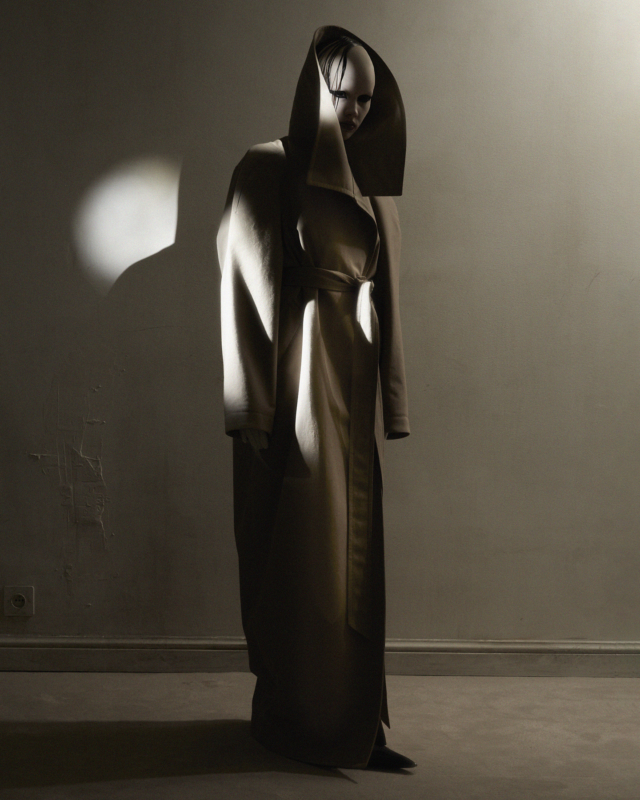 Fecal Matter: Trench coat and shoes, Balenciaga Haute Couture.
Fecal Matter: Trench coat and shoes, Balenciaga Haute Couture.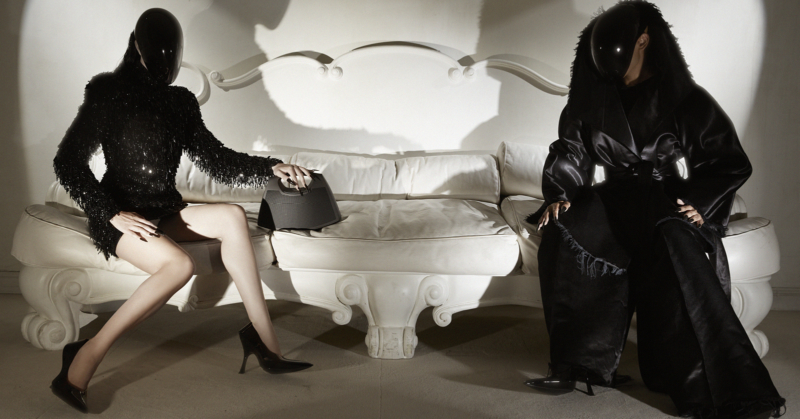 Fecal Matter: Dress, jacket, pants, masks, shoes and bag, Balenciaga Haute Couture.
Fecal Matter: Dress, jacket, pants, masks, shoes and bag, Balenciaga Haute Couture.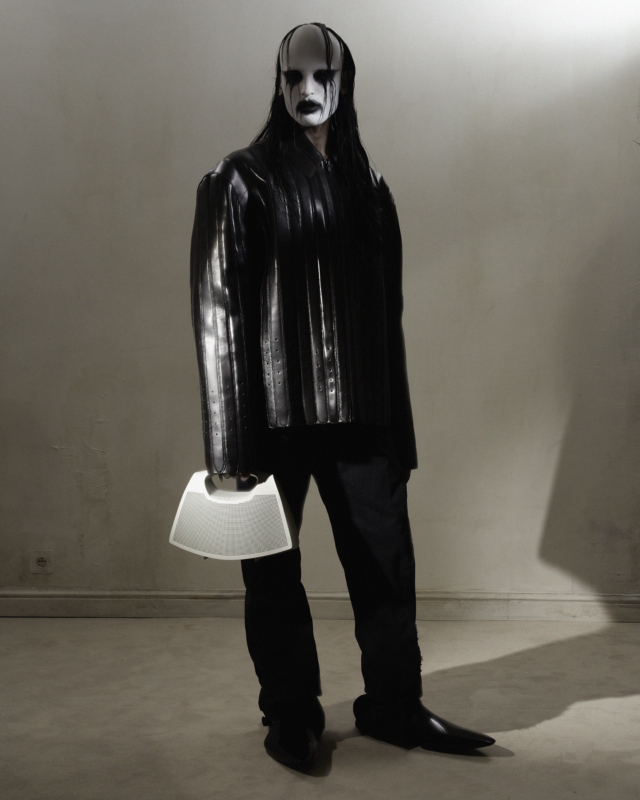 Fecal Matter: Jacket, jeans, shoes and bag, Balenciaga Haute Couture
Fecal Matter: Jacket, jeans, shoes and bag, Balenciaga Haute Couture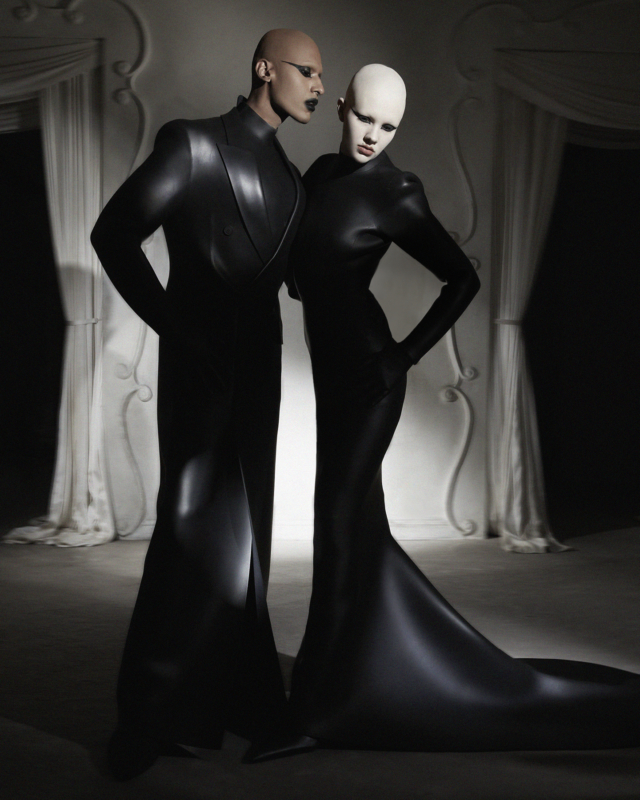 Fecal Matter: Coat, top, shoes, dress and thigh-high, Balenciaga Haute Couture.
Fecal Matter: Coat, top, shoes, dress and thigh-high, Balenciaga Haute Couture. Fecal Matter : Dress and gloves, Balenciaga Haute Couture.
Fecal Matter : Dress and gloves, Balenciaga Haute Couture.